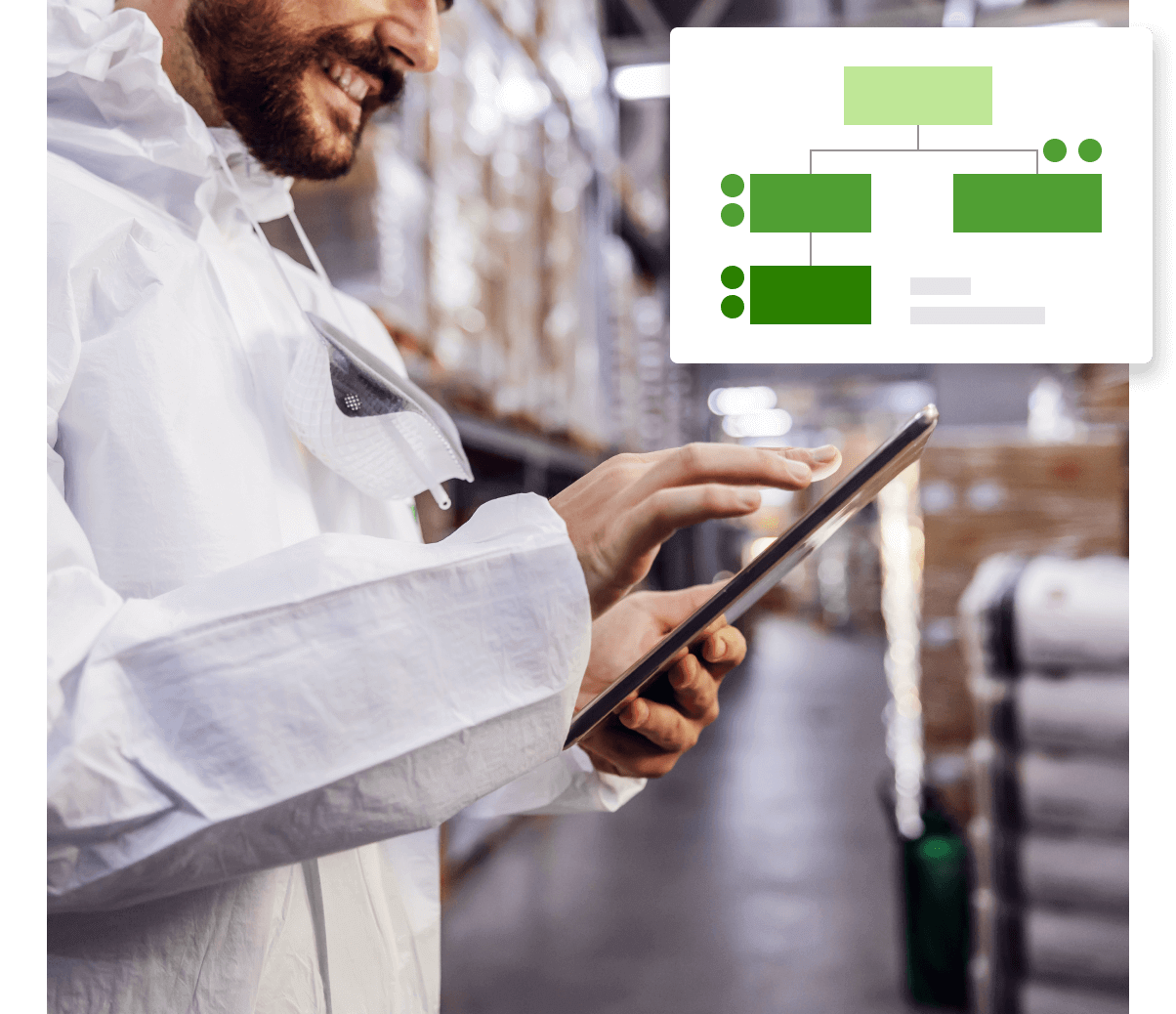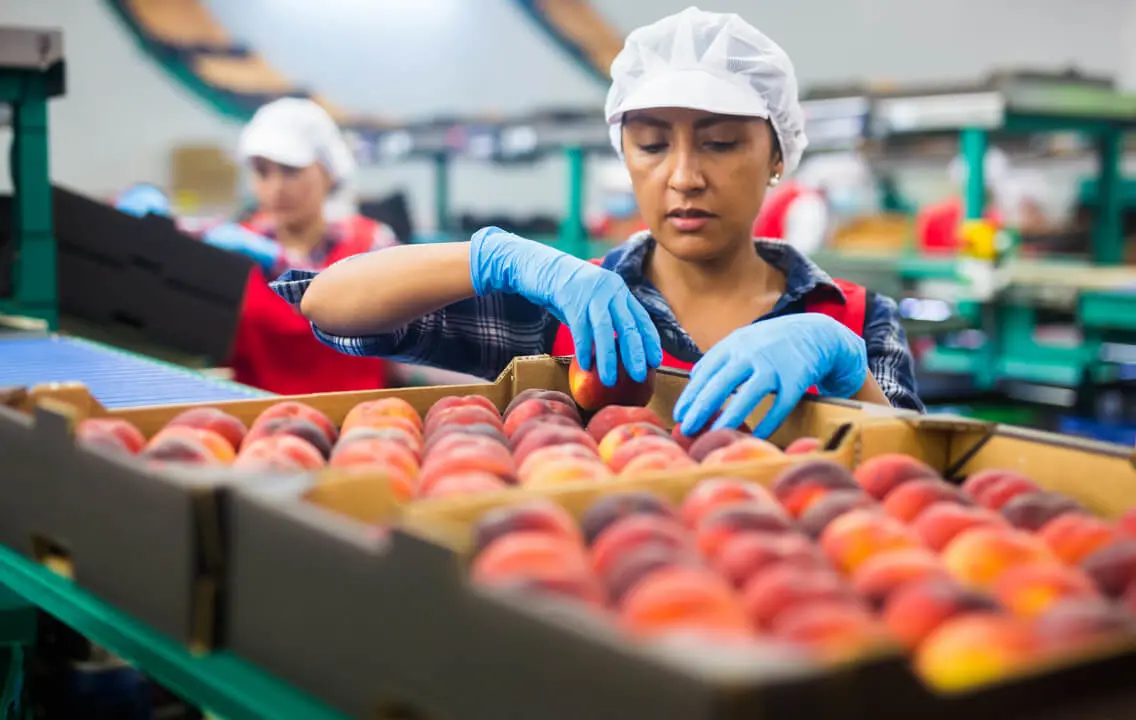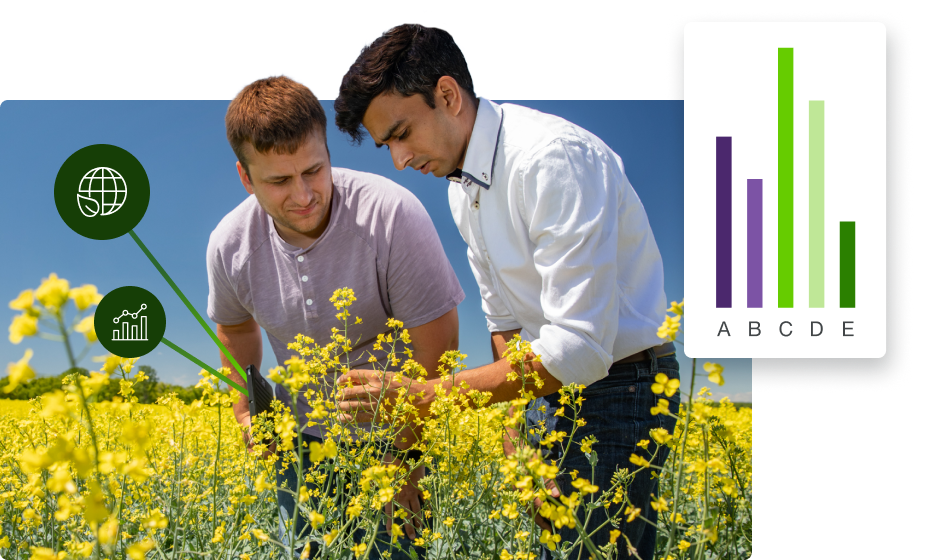

TELUS Food Safety & Quality
Improve quality and safety by mitigating risk and reducing waste
Adhere to high-quality and food safety standards across the supply chain while ensuring a strong brand reputation through total visibility of your operations.

Product highlights
Highly configurable, centrally managed product inspections
Product quality, safety and process and facility checks
Report instantly on all aspects of performance
Process controls with corrective action and tiered escalations
Improve accuracy by standardizing your processes
Improve efficiency by collaborating with suppliers
Perform both on and offline app inspections
Measure performance at any point in the supply chain
Access your data anytime, anywhere with secure cloud storage¹.
Track product temperature throughout its distribution journey
Key Features
Go paperless
Modernize your quality and compliance management by capturing product quality, process, facility and safety checks into a cloud-based, highly configurable platform.

Real time reporting
Gain a real-time view of your operations and product quality through tiered escalation, system-generated reports and automated user alerts.

Quality Assurance
Centrally create and maintain quality standards and compliance expectations in a structured, scalable and efficient approach.

Benefits
- Reduce product rejection in the supply chain
Set your quality expectations with your suppliers by centrally building quality attributes you wish to measure.
- Drive performance and reduce waste
Optimize the efficiency of your operations and reduce waste with powerful reporting that enables benchmarking and profiling of product, site, supplier and people performance.
- Harness predictive analytics
Improve customer satisfaction by boosting shelf-life performance, reducing waste, incorporating third-party data sets and overlaying AI principles.
- Monitor temperature from source to store
Reduce food waste and improve food safety by integrating with TELUS Cold Chain to monitor temperature compliance and create an autonomous smart cold chain.
- Measure anywhere
Measure and capture key performance data at any point in the supply chain with our platform-agnostic app that includes offline functionality.
- Simplify data integration
Drive efficiency and authenticity by integrating data captured in TELUS Food Safety & Quality with key ERP systems.
- Manage shelf life expectations
Align temperature abuse with shelf life implications and bacterial and mould growth models to temperature graphs through accurate temperature management.
- Reduce your carbon footprint
Help reduce your carbon footprint by eliminating food waste from your supply chain.
Get started today
Contact us and a TELUS Agriculture & Consumer Goods sales representative will be in touch to assist you.
Schedule a call with an expert
- Connectivity is subject to Wi-Fi capabilities and availability in the area.
